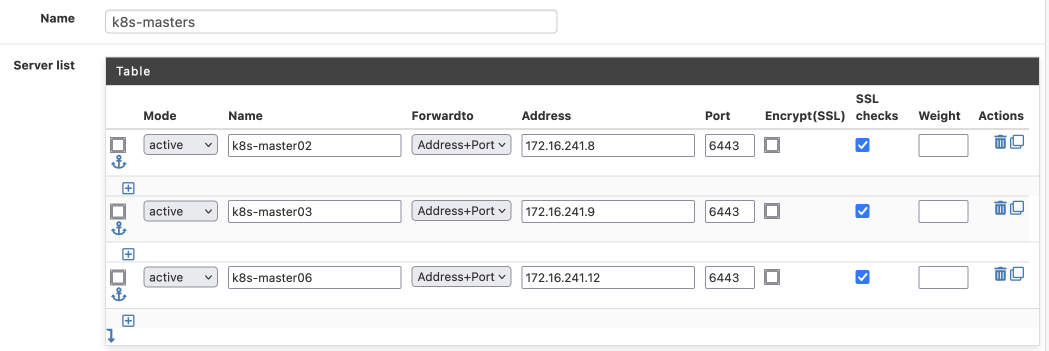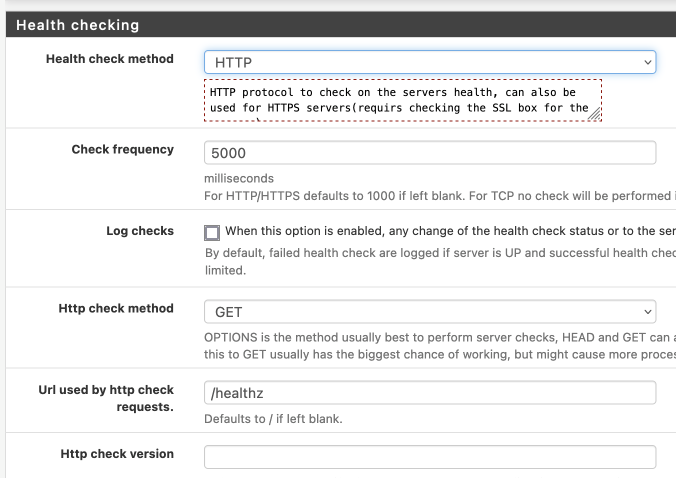HAProxy health checks against kube-apiserver
There are plenty of tutorials out there about how to run a highly-available kubernetes api-server behind haproxy. Without exception however, these tutorials configure haproxy to "check" the health of the backends with a simple TCP connection.
Why is this a problem?
Just because the apiserver is responding on a TCP port, doesn't mean it's healthy, and sending API requests to an unhealthy apiserver is a very bad idea. Say for example, a particular apiserver's etcd backend was unhealthy - the apiserver would appear to be "healthy" to haproxy, and so it would receive kubelet / client traffic, but would return errors, bad data, or simply timeout.
How can we improve kube-apiserver health checks from HAProxy?
HAProxy is extremely versatile, and can perform a multitude of probes to determine the health of a backend. Kube-apiserver also exposes some health-check endpoints, like /healthz or /readyz. If we could configure haproxy to use an HTTP(s) check against the /healthz endpoint, we'd be able to be assured of only sending apiserver traffic to a healthy backend.
I initially tried to do this simply by pointing an HTTP check to /healthz, but kube-apiserver responded with a 403, which haproxy took to be a failure. Reading the haproxy blog post, it may be possible to simply configure haproxy to expect the 403, and use this as an indication of a "healthy" endpoint:
backend webservers
option httpchk
http-check connect
http-check send meth GET uri /health
http-check expect status 200
http-check connect
http-check send meth GET uri /health2
http-check expect status 200
server server1 192.168.50.2:80 check
server server2 192.168.50.3:80 check
server server3 192.168.50.4:80 check
This'd be better than a TCP health check, because at least it'd indicate that the apiserver was running, but it's still not ideal, because what if the /healthz actually reported that apiserver was unhealthy? Checking for a 403 would still result in traffic being sent to an unhealthy apiserver.
Allowing anonymous auth
The most pragmatic solution I found was to allow anonymous auth on the kube-apisever, by adding --anonymous-auth=true to the apiserver arguments. This may be a controversial change, since it exposes the apiserver to enumeration, potential DOS, and exposes an additional attack vector if authn is misconfigured in other ways..
What does allowing anonymous auth entail?
Per the Kubernetes docs:
When enabled, requests that are not rejected by other configured authentication methods are treated as anonymous requests, and given a username ofsystem:anonymousand a group ofsystem:unauthenticated.
HAProxy configuration for kube-apiserver healthz checks
Having made the security / availability tradeoff described above, I implemented this in haproxy on pfsense as illustrated below:


Once the backends are configured, the haproxy stats show their health as L7OK/200, as illustrated below:
